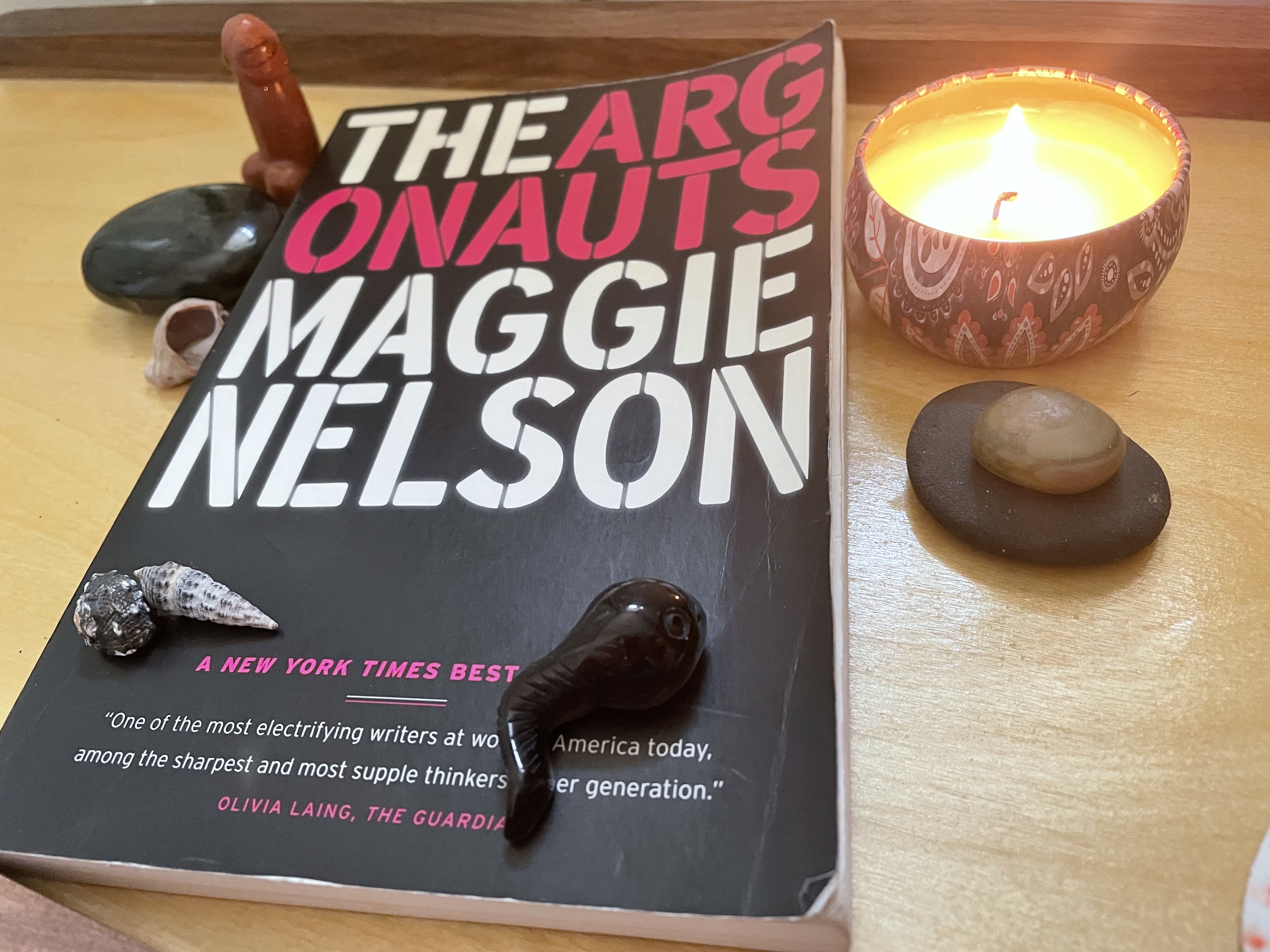Confident in Classics
(March 2021)
(cw: description of acupuncture)
(cw: description of acupuncture)

Michael, my acupuncturist for five years, recommends a lot of books and shows for me to consume. I don’t watch things alone very much. I like sharing commentary and laughter and terror with at least one other person. I like talking about the thing I watch. However, I read alone voraciously—have for years. I’ve been reading before anyone realized I could. I kept it a secret for a while, just so people would keep reading to me. I take and give many, many book recommendations.
Michael told me to read Maggie Nelson. We were both in masks, in a pandemic, and he was rubbing the most wounded, tender, frightening limb I have. I do not get touched much in the pandemic. I get anxiety now when most people do. I jump a bit, twitch or flinch. Not with Michael, though. He presses my skin, my muscles, the tight tendons of my forearm and the many screws and the broken plates that were meant to hold my elbow together. He tucks needles where they will do some good and he told me about a book called The Argonauts.
It’s a prose-poem piece about Nelson’s pregnancy and journey to motherhood, but it’s also about her partner’s transition—Harry Dodge’s mastectomy, going on testosterone, refusing to choose pronouns or live a binary trans life, but presenting masc and identifying as butch. Wikipedia says that Nelson’s book deals with “desire, identity, family-making, and the limitations and possibilities of love and language.” I haven’t read it yet—I’ve barely started—but I was fascinated by this confluence of ideas.
I spent a lot of time taking Classics classes in college. I liked the writing that survived of the Ancient Greeks and Romans. I enjoyed learning the language and considering the themes and the history that we still have records of. But the stories muddle in my head.
The Argonauts were a group of sailors. They went with the hero Jason to acquire the Golden Fleece, sailing a ship called Argo. The ship from the story was used to define a constellation for a while, but the constellation was too big and in 1763 it was broken into Carina (the hull), Puppis (the poop deck) and Vela (the sails).
(Years ago, by the side of a mountain road in New Zealand, in an area that a website had told me had very little light pollution, I used a star map app on my phone to identify Southern Hemisphere constellations with my mother and my brother. I spent a lot of that time finding a shape in the stars and asking what it was named. For some reason, the constellation was almost always Puppis. I always forgot it was Puppis. I didn’t know it was also a piece of The Argo. Pay attention to my innocent ignorance here, it’ll come up again in a moment.)
I knew about Jason and the Argonauts. They were a myth I’d heard before. I also was very confident I knew about The Argo. I told my mother on a walk about this book I was excited to read whenever it came from the library. I told her, quite confidently, that it was a reference to a ship being remade. When you replace all the boards on a ship and repair it until nothing is left of the original, is it still the same ship? I wondered about that, in awe of the reference. All the bodily changes that a person goes through when they alter through pregnancy or HRT or surgery, the changes we go through in a life, the roles we play in our own life, in others’ lives. How those roles change, but are we the same person. What a magnificent reference, I thought, confident in my interpretation and thrilled by the idea of filling in the gaps in my understanding of Nelson and her partner’s life after being handed such a beautiful prologue in the title of the book alone. The Argonauts. People who are part of something that has been remade but remains the same.
The ship that is fully remade but still the same ship is not The Argo. It’s a thought experiment called the Ship of Theseus.
I was theorizing from nothing, from my own flawed view of what it is to transition or take on the mantle of being a mother, being a wife, making a home. It’s what I believed about those life changes. I was assuming, and it made me an ass.
Nelson actually notes The Argo’s changing components in the text, though, so she was evoking the Ship of Theseus with her love-life story entitled The Argonauts. I don’t have to tell anyone about this embarrassing confidence-shame-vindication (except maybe my mother, who will laugh without understanding my embarrassment, and maybe Michael, though this story is long enough when I write it down that I don’t want to risk having to regurgitate it aloud, lying on my back on his table with my arm full of needles that work gently and patiently to take apart my pain and reassemble me into something closer to myself).